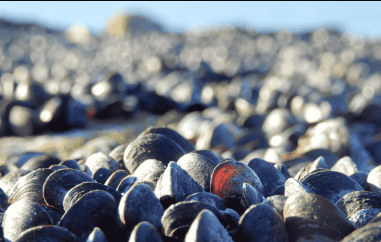Protein Consumption Linked to Arterial Damage
 A recent study from Pittsburgh, USA, sheds light on potential risks associated with the excessive consumption of protein, particularly in the form of shakes. The research, led by cardiologist Babak Razani, identified a molecular mechanism linking high protein intake to an increased risk of atherosclerosis, or hardening of the arteries. Professor Dr. Karsten Köhler, head of the professorship for exercise, nutrition, and health at the Technical University of Munich, provided insights into the study's findings for IPPEN.MEDIA.
A recent study from Pittsburgh, USA, sheds light on potential risks associated with the excessive consumption of protein, particularly in the form of shakes. The research, led by cardiologist Babak Razani, identified a molecular mechanism linking high protein intake to an increased risk of atherosclerosis, or hardening of the arteries. Professor Dr. Karsten Köhler, head of the professorship for exercise, nutrition, and health at the Technical University of Munich, provided insights into the study's findings for IPPEN.MEDIA.
The study, published in the journal Nature Metabolism in February 2024, builds upon earlier research from 2020, where laboratory experiments on mice demonstrated a correlation between high protein intake and an elevated risk of arteriosclerosis.
The protein study's key details are as follows:
- Participants: The study involved 23 subjects.
- Structure: Participants were divided into two groups, receiving either a meal or a shake with varying protein content.
- Blood tests: Researchers conducted tests before and after protein administration, isolating immune cells to determine changes in amino acid amounts and composition.
One noteworthy result was the high concentration of the amino acid leucine, affecting immune cells (macrophages) crucial for plaque disposal. The study suggests that consuming more than 22 percent of daily calories from proteins could potentially harm arteries, according to Razani.
Professor Köhler, a nutrition expert, acknowledged the study's findings but emphasized the importance of considering both negative and positive effects of high-protein diets. He highlighted that increased protein intake, particularly during weight loss, intense strength training, or in old age, can have positive effects. However, Köhler stressed the need for a larger study population to draw definitive health-related conclusions.
In Germany, the German Society for Nutrition recommends specific protein amounts. Professor Köhler explained that while a high-protein diet has advantages such as improving satiety and preventing muscle mass loss, it comes with risks. Individuals with kidney damage, for instance, should adhere to a low-protein diet.
In conclusion, Köhler underscored the importance of a balanced diet that includes a mix of vegetable and animal proteins, carbohydrates, and vegetable (unsaturated) fats. Despite the potential benefits of protein consumption, moderation and consideration of individual health conditions remain key.
Image by Terigentes from Pixabay










































